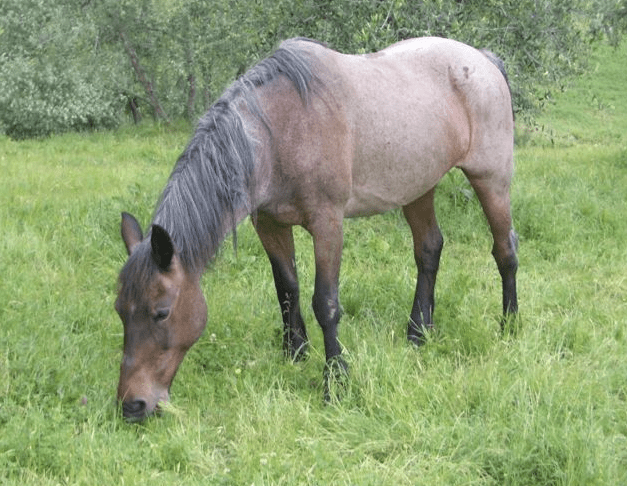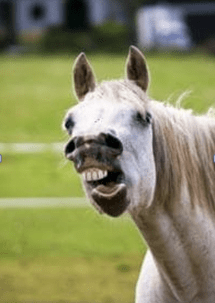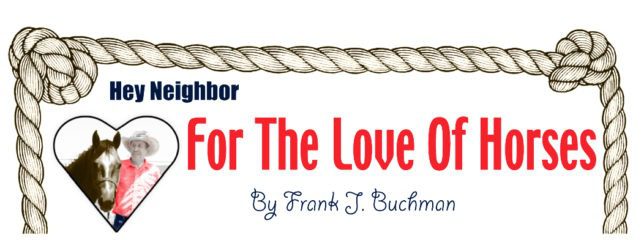Certain horses have earned a home for their lifetime.
Despite getting old unable to earn their keep today, a horse who’s gone above and beyond deserves special elderly care.
“Dental disease is the most overlooked and least recognized problem by horse owners,” according to Dr. Mary Paradis, equine veterinarian.
A dental examination was recommended every six to nine months for older horses. “Horses with severe dental disease may require a gradual correction of the problem,” Paradis said.
“Dental changes occur in all older horses because the teeth continue to grind down. Ability to grind forage will eventually diminish and can lead to problems such as impaction colic.”
Veterinarian surveys of old horses found many dental issues. “Most of the time the owners felt the horse was fine,” said equine health specialist Dr. Janice Kritchevsky.
Evidence that a senior horse has dental trouble can be small bundles of hay or grass on the ground. “That horse likely has bad teeth or a neurologic problem preventing it from chewing and swallowing normally,” Kritchevsky said.

Older horses often have sharp hooks, points, loose teeth, and diseased roots, all of which can make chewing painful and difficult. “Issues can sometimes be reduced by floating the teeth removing the sharp edges along with other treatments,” Kritchevsky explained.
Some senior horses might have few to no teeth at all. “The fewer teeth a horse has,” Kritchevsky said, “the harder it is to feed them without choking.”
Horses can choke on poorly chewed forage or grain. “Before long there is a solid clump of feed that cannot move into the stomach. The worse the teeth, the more likely the problem,” Kritchevsky indicated
Feeding changes can help reduce horse teeth problems. Cooking the ration or feeding a softened pelleted feed were suggested to increase old horse feed intake.
Older horses can be separately from the rest of the herd to give them time to eat without competition.
“The inability to chew affects a horse’s nutritional status, therefore, body condition and overall health,” said veterinarian Dr. Margaret Brosnahan.
Many older horses are actually normal weight or obese. “The latter can cause further wear on already-creaky joints,” Brosnahan said.
Overweight horses might need a test for equine metabolic syndrome (EMS), an insulin abnormalities leading to laminitis, known as “founder.”
That horse probably needs limited pasture access with a weight-loss diet low in sugars and starches. “Special feed formulations should have less than 12 percent sugar and starch,” said Brosnahan.
When a horse with good teeth becomes thin, it might have neck arthritis making eating off the ground painful. “Reposition the feeder to shoulder height,” Brosnahan suggested, “to see if your horse starts eating more readily.”
Sudden weight loss can also be due to cancer, liver disease, or internal parasite infections. “A veterinarian is needed to check for these problems,” Paradis advised.

“If there seems no medical reason for low weight, adding diet fat for calories is a good idea,” Paradis said. “This might be something like rice bran, soy oil, or flaxseed.”
Horses lose muscle tone as they age. “Owners can offer senior feeds or supplements that have the correct amino acid balance to promote muscle tone,” Kritchevsky said
As a horse ages, musculoskeletal problems might arise due to changes in and wear on joints, cartilage, and tendons. These structures weaken over time.
“It is important not to put arthritic horses in a stall full-time,” Kritchevsky insisted. “Movement tends to keep them more limber. Anti–inflammatory drugs are helpful in keeping them comfortable.”
“Don’t switch to a senior diet or discontinue athletic activities just because the horse reaches a particular age,” Brosnahan said.
However, it will take longer to condition for work. “Work with the horse daily. An older competitor tires more quickly, so an extensive class warm-up is probably not the best.” said Brosnahan.
The older a horse gets, the more susceptible it is to chronic breathing problems and coughing.
“Make sure housing has excellent ventilation or keep the horse turned out. Be sure forage is not dusty or moldy, and soak it, if needed, to remove allergens,” Brosnahan recommended.
Aging-related vision changes do occur in a large proportion of older horses, and certain defects are difficult to detect. “If an older horse seems disoriented or bumps into things, it is time for an eye exam,” Brosnahan said.
“The importance of companionship in keeping an aging horse comfortable should be addressed on an individual basis,” Paradis noted
“Certain horses are inseparable, and the death of one can lead to depression in the other,” Paradis noted. “Horses feel more protected with another horse or a person on guard against the scary world sometimes.”
Horse aging problems caught early are generally easier to treat.
“Schedule a wellness exam with body condition scoring as well as dental exams,” Brosnahan advised. “Don’t switch to a senior diet or discontinue athletic activities just because the horse reaches a particular age. Wait for the horse to tell you with his body changes.”
Aged horses might need a bit more support physically. But the experience they have is invaluable and not something that can be replaced just by getting a younger horse.
“Many horses in their late 20s do wonderfully in lesson programs. Treasure your older horse for all the wonderful moments he has given you,” Brosnahan demanded.
